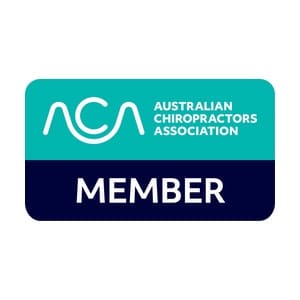Do I Have a Pinched Nerve?

Nerves are responsible for sending signals throughout your body. Your body has three types of nerves – sensory nerves (nerves relaying information to the brain so you can feel, smell, and see), motor nerves (nerves controlling your movements and actions), and autonomic nerves (nerves controlling involuntary/partially voluntary body activities, such as heart rate and digestion). As these messages travel along nerve paths, nerves may become pressurized or compressed by surrounding bones, cartilage, muscles, or tendons. This is called a pinched nerve.
Symptoms of pinched nerves typically manifest as pins and needles or numbness, muscle weakness, and sharp, aching, or burning pain, in the affected area. Various conditions can cause tissue to pressurize a nerve, including injury, rheumatoid arthritis, or stress. The risk of a pinched nerve is exacerbated by:
- Gender – women have smaller carpal tunnels, and thus are more likely to develop carpal tunnel syndrome, where there is a pinched nerve in the wrist.
- Diabetes – high blood sugar can damage the nerves, inhibiting the communication of critical signals throughout your body.
- Obesity – excess weight can add pressure to your nerves.
- Pregnancy – weight gain stemming from pregnancy can cause nerve pathways to swell, increasing the risk of a pinched nerve.
- Thyroid Disease – can cause the carpal tunnel to thicken and swell, increasing risk of carpal tunnel syndrome and thus, a pinched wrist nerve.
- Bone Spurs – can stiffen the spine. This narrows the nerve pathway, potentially causing a pinched nerve.
- Sports – certain sports that involve repetitive twisting (e.g. soccer, golf, etc.) may increase the risk of a pinched nerve.
Think you may have a pinched nerve? Not to worry – chiropractic treatment can assist!
How Can A Chiropractor Help?
- Chiropractic adjustments – adjustments can create traction to decompress the nerve, minimising pain. Pinched nerves can also cause compensatory pain in areas surrounding the pinched nerves. Chiropractic adjustments can aid in restoring alignment, stability, and overall comfort in such areas.
- Soft Tissue Work – Soft tissue work can relax the surrounding muscles to release tension compressing nerve pathways
- Stretch plan – your chiropractor can create a comprehensive stretch plan to relax and loosen the surrounding muscles, minimising pressure on the affected nerve.
- Tens Machine – A tens machine sends electrical impulses to reduce pain signals being caused by the compressed nerve, relaxing surrounding muscles and relieving discomfort
There are also many ways to prevent a pinched nerve. Maintaining a healthy weight minimises the risk of obesity and excess pressure on nerve pathways. Doing stretching exercise can also keep your muscles flexible and mobile, minimising any muscle stress that could pinch a nerve. Taking rests between repetitive motions, such as typing, can also aid in minimising risk of a pinched nerve.





